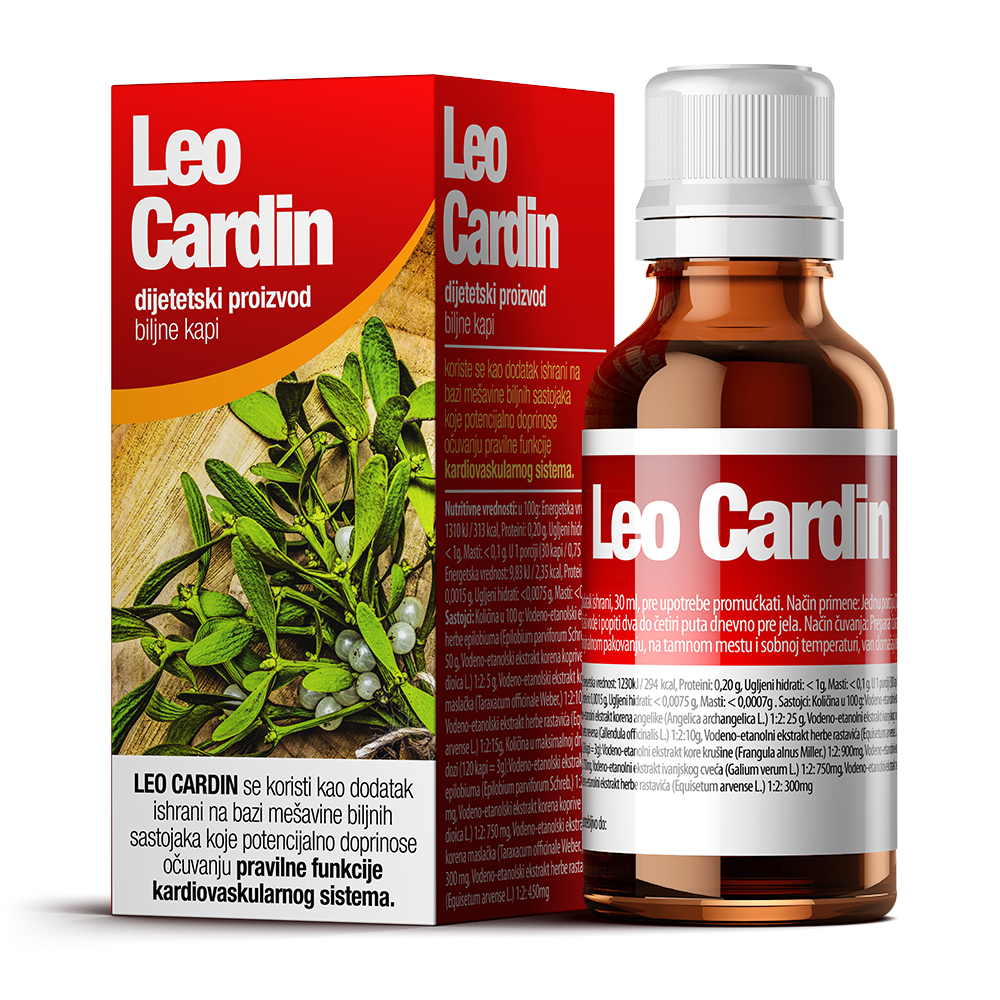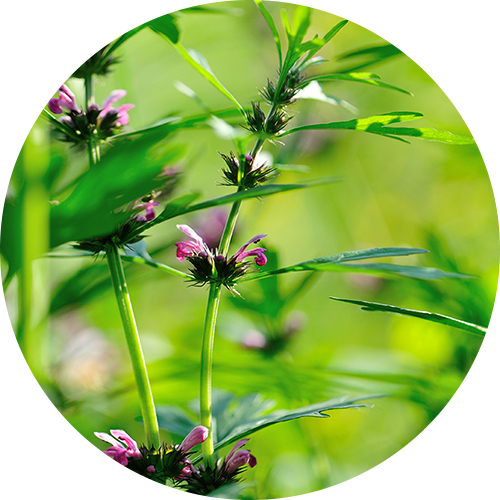(Leonurus cardiaca)
An old legend recounts the story of a rivulet whose banks were richly overgrown with motherwort. The inhabitants of a township through which this rivulet flowed allegedly lived for at least 130 years and the oldest inhabitant even lived long enough to see his 300th birthday. Leonurus, literally translated as a lion’s tail, or motherwort, is an herbaceous perennial plant in the mint family Lamiaceae. Its Latin name, Leonurus cardiaca, has the word heart in it. In ancient Chinese medicine, motherwort was linked to a long life. Ancient Greeks used to give it to anxious pregnant women (which was wrong) and that is where its English name comes from – motherwort – mother’s herb. It was an indispensable remedy in ancient Rome whose doctors used it to treat heart problems. In Europe, it has always had a very wide application as a medicinal plant for the people and the cattle. It was used as a tranquilliser in the Cherokee tribe.
As its Latin name suggests, motherwort has a connection with the heart. During Queen Victoria’s reign in Britain, symbolic meaning was attached to each flower and motherwort was a symbol of hidden love. But this plant is not only a cure for emotions – it also works for angina pectoris, post-infarction conditions, it calms and balances the heart rhythm, regulates cholesterol and improves circulation.
In folk medicine and phytopharmacy, the above-ground part of the plant is used – stalks and leaves that are serrated and reminiscent of nettle as well as its pink flowers. Infusions are prepared from dried motherwort, but alcoholic tinctures are much more useful.
SCIENCE AND MOTHERWORT
The first official Chinese pharmacopoeia, Tang Peng Ts’ao from 659 AD, reports that motherwort is effective in “expelling dead foetus and retained placenta”. Much later, it was indeed proven that the plant causes uterine contractions and can cause miscarriage, so it is not recommended for pregnant women.
Russian scientists Mashkovskii and Krylov included it in the Register of Medicinal Agents of Russia as a plant that reduces the symptoms of anxiety, cardiac anxiety and early phases of hypertension. In addition to the Russian pharmacopoeia, the plant has also been included in the European pharmacopoeia which recognises its traditional application to reduce palpitations. Rational Phytotherapy, a reference guide for physicians and pharmacists by Hansel, Blumenthal and Tyler, also recommends motherwort to be used for palpitations. In 1984, another Russian scientist, Sokolov, said that motherwort is three times more effective than valerian in reducing stress and anxiety. The International Centre for Chemical and Biological Sciences at the University of Karachi has confirmed that the ursolic acid from motherwort is an excellent inhibitor of superoxides in the cellular system.
The European Medicines Agency mentions the use of motherwort for heart palpitations – tachycardia, irritability, poor blood circulation, angina pectoris, neurasthenia, epilepsy, hypertension, menopausal symptoms, menstrual disorders, cramps, difficulty urinating and anaemia; it also places emphasis on its antioxidant, antimicrobial, anti-inflammatory, sedative and cytotoxic properties.
WHAT ARE MOTHERWORT’S HEALING PROPERTIES?
Leonurine, an alkaloid found in this plant, has been shown to be a successful inhibitor of vascular tone. In simple terms, it relaxes the muscles. Tannins have bacteriostatic and antioxidant effects. Acetylcholine balances blood pressure. Choline breaks down fats and slows down their deposition; minerals improve circulation and decelerate the ageing of blood vessels. Ursolic acid protects the nerves, memory, stimulates muscle work, protects against cancer and prevents damage caused by a heart attack.
Motherwort is especially valued in Chinese traditional medicine; modern research conducted in China has proven that this is completely justified. Ischemic heart disease, especially acute myocardial infarction, is the leading cause of death worldwide. The most important characteristic of ischemia is hypoxia, lack of oxygen. Studies have shown that leonurine reduces myocardial damage during a heart attack. With its anti-apoptotic, antioxidant and anti-inflammatory effects, this plant does not only have a cardio-protective effect, but it also prevents the formation of cancer cells. Apart from being a natural vasodilator, it increases blood circulation in the heart and in peripheral blood vessels and prevents atherosclerosis; motherwort also contributes to increased blood circulation to the brain, prevents stroke and neurodegenerative diseases. The anti-inflammatory effect of leonurine also reduces the symptoms of diabetes and stabilises insulin levels; there is concrete evidence that it inhibits osteoclastogenesis and thus prevents oestrogen-deficient osteoporosis, which is especially important for menopausal women.
LEONURINE, BITTER SUBSTANCE WITH SWEET EFFECT
Leonurine has been proven to destroy tumour cells in chronic myeloid laeukemia; it is known that polyphenols have immunomodulatory action and help with lesions such as infective endocarditis, foot ulcers in diabetics and chronic wound infections. The anti-inflammatory and analgesic effects of motherwort have been proven in numerous clinical studies. Motherwort accelerates the activity of lactoperoxidase, which is why it has an antibacterial effect, strengthens the body’s immunity and the ability to defend itself against pathogens.
Thanks to flavonoids, especially rutin, motherwort lowers blood pressure and increases blood flow, which is especially important in ventricular tachycardia. In addition to rutin, chlorogenic acid, orientin, quercetin and hyperoside inhibit the formation of free radicals in mitochondria and thus protect the heart muscle; thanks to them motherwort has a greater antioxidant effect than green tea.
Even though motherwort is primarily a plant for the heart, it has wider application due to the fact that it soothes and eliminates inflammation, so it is also used to alleviate the effects of stress, anxiety, panic attacks, nervousness, irritability, insomnia, symptoms of hyperthyroidism and Graves’ (Basedow) disease. So, this miracle worker heals both our body and soul.
Motherwort, the symbol of hidden love, does not hide its love towards the human race at all. It is everywhere around us, it has been at our service for centuries; you can look for it in the fields and woods but it would be easer to find it in Herba Svet laboratories. Leocardin is a professionally created preparation that nourishes and strengthens the heart; alongside motherwort, it contains other medicinal herbs that complement its action. Leocardin – for a healthy lion heart.

